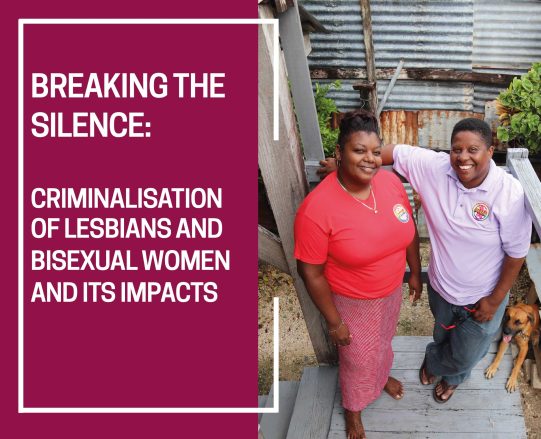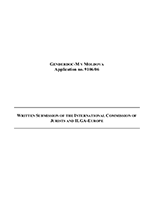
Intervention of the ICJ and ILGA before the European Court of Human Rights in Genderdoc-M v Republic of Moldova, 2012
This is a written submission of the International Commission of Jurists and ILGA Europe before the European Court of the Human Rights in 2012 in support of the claimant Genderdoc-M in the case of Genderdoc-M v Republic of Moldova.
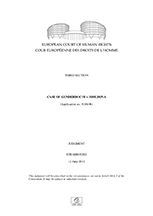
Genderdoc-M v Moldova (no. 9106/06), 2012
The European Court of Human Rights found that by prohibiting a demonstration promoting the interests of the LGBT community, the Republic of Moldova had violated its obligations under Articles 11 (freedom of assembly or association), 13 (right to an effective remedy), and 14 (prohibition of discrimination) of the European Convention on Human Rights.
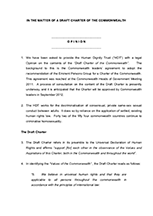
Opinion on the Draft Commonwealth Charter 2012
Opinion of the Human Dignity Trust on the Draft Commonwealth Charter, concluding there is a lack of effective human rights protections pertaining to sexual orientation and gender identity in the Charter.
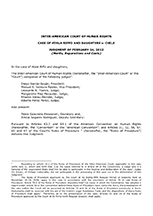
Atala Riffo and Daughters v Chile, 2012, Series C No. 239
Judgment of the Inter-American Court of Human Rights finding that Chile violated the complainant's right to freedom from discrimination and to privacy in a custody case of same-sex parents.
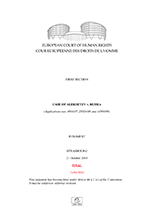
Alekseyev v Russia, Nos. 4916/07, 25924/08, 14599/09, 2010
Judgment of the European Court of Human Rights finding the Russian Federation to have violated the applicants rights to freedom of assembly and association and non-discrimination, condemning Russia for prohibiting LGBT pride marches.
![HJ (Iran) and HT (Cameroon) v Secretary of State for the Home Department, Supreme Court of the United Kingdom, [2010] UKSC 31](https://www.humandignitytrust.org/wp-content/uploads/2019/02/HJ-Iran-and-HT-Cameroon-v-Secretary-of-State-for-the-Home-Department.png)
HJ (Iran) and HT (Cameroon) v Secretary of State for the Home Department, Supreme Court of the United Kingdom, [2010] UKSC 31
Judgment of the Supreme Court of the United Kingdom which ruled in favour of two gay men from Iran and Cameroon applying for asylum in the UK. The question for the Court was whether the men could be expected to conceal their sexual orientation in order to avoid the risk of persecution. The Supreme Court held that no one should be expected to conceal their sexual orientation in order to avoid persecution.

